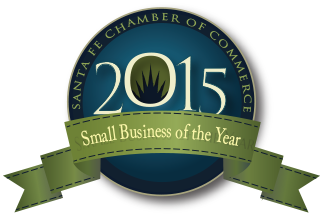
07 Nov The Evolving Market for Main Street Businesses
The market of buyers for small Main Street businesses, not only in New Mexico but throughout the United States, is dynamic and steadily evolving. Over the past decade, demographic shifts, broader economic trends, and evolving buyer motivations have had an effect on the types of businesses sought out. Just as before, buyers look for businesses that have strong and reliable financial performance, but an ever-growing pool of buyers look for opportunities that they can bring their own skills that will enhance and grow the current operation. They put a premium on businesses with a compelling value proposition.
The Rise of Millennial Buyers. Millennials (born 1981-1996) have become more prominent in the small business buying market, although from our experience, they have yet to eclipses the dominant Gen X (born 1965 -1980). When compared to earlier generations, millennials are more likely to seek entrepreneurial opportunities earlier in life, but their motivations slightly differ. Many look for opportunities that will offer them flexibility, independence, and work-life balance.
In describing this evolution, BizBuySell’s writes: “As buying a business becomes more mainstream, a new generation of entrepreneurs with perhaps less hands-on experience, but a strong understanding of return on the dollar has entered. Among the most notable entrants, 35% of today’s buyers identify as a corporate refugee, exiting corporate America for the independence of small business ownership. Furthermore, 14% are recently retired, and 12% are recently unemployed.” (BizBuySell Insight Report)
“Acquisition Entrepreneurship.” Acquiring an established business is one way that millennials can meet their needs for innovation and wealth-building while also minimizing the risk involved in starting a business from scratch. They tend to focus on businesses that have a strong and clear value proposition.
Buyers are Better Informed Than Ever. With the wealth of information online, buyers are savvier and more selective in their purchasing decisions. They can research market trends, review competitors, read the business’s online reviews, and more readily learn about the local market. They are increasingly focused on understanding cash flow, profitability trends, and the business’s operational dependence on the current owner.
The Lingering Effect of Covid. The global pandemic put a premium on essential, service-oriented businesses that could withstand a major economic shock. While this singular focus has begun to somewhat abate post-pandemic, buyers continue to put a premium on businesses that have a track record of major weathering economic downturns. Consequently, businesses with either a a recurring source of income, such as IT Services, Home Healthcare, and HVAC/Plumbing or those that have a reliable based of loyal repeat customers, continue to be popular.
Higher Expectations for Seller Support. More aware and better informed about the delicacy of the transition period, today’s buyers look for ways that they can minimize this risk. Increasingly, they are requesting that sellers provide complimentary extended training and support post-sale and often want to have the option of hiring them as a consultant on favorable terms over that first year.
The small business buyer market has matured and diversified, with a younger, more lifestyle-focused, and better-informed buyer pool.









